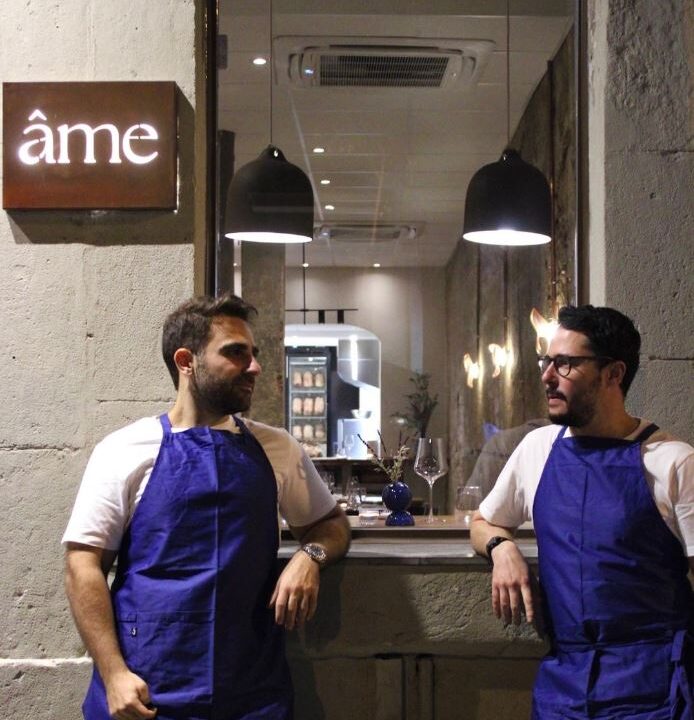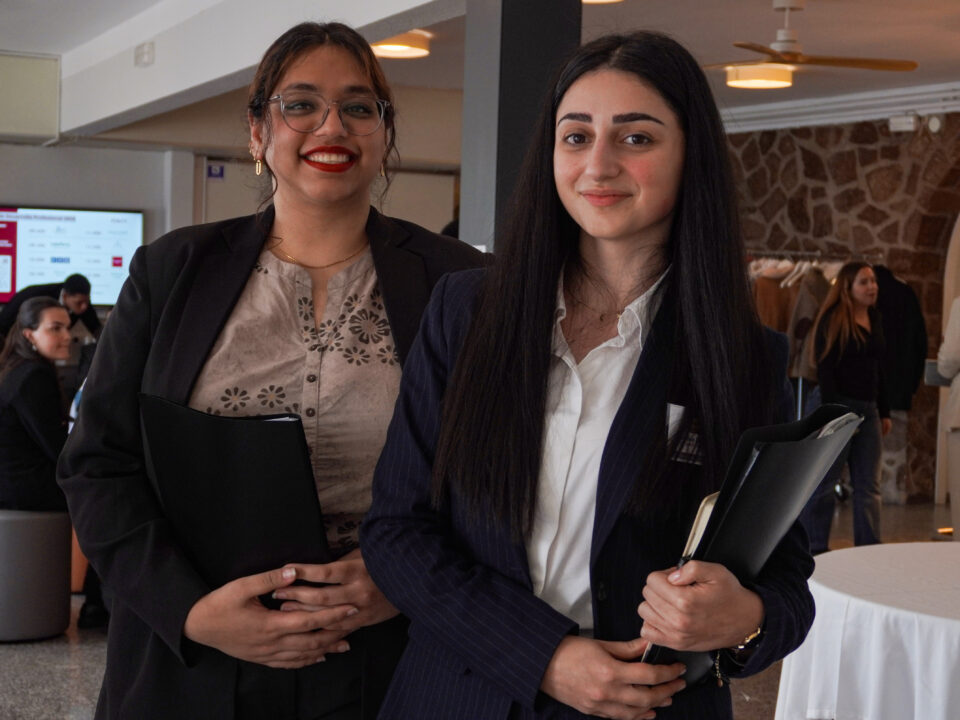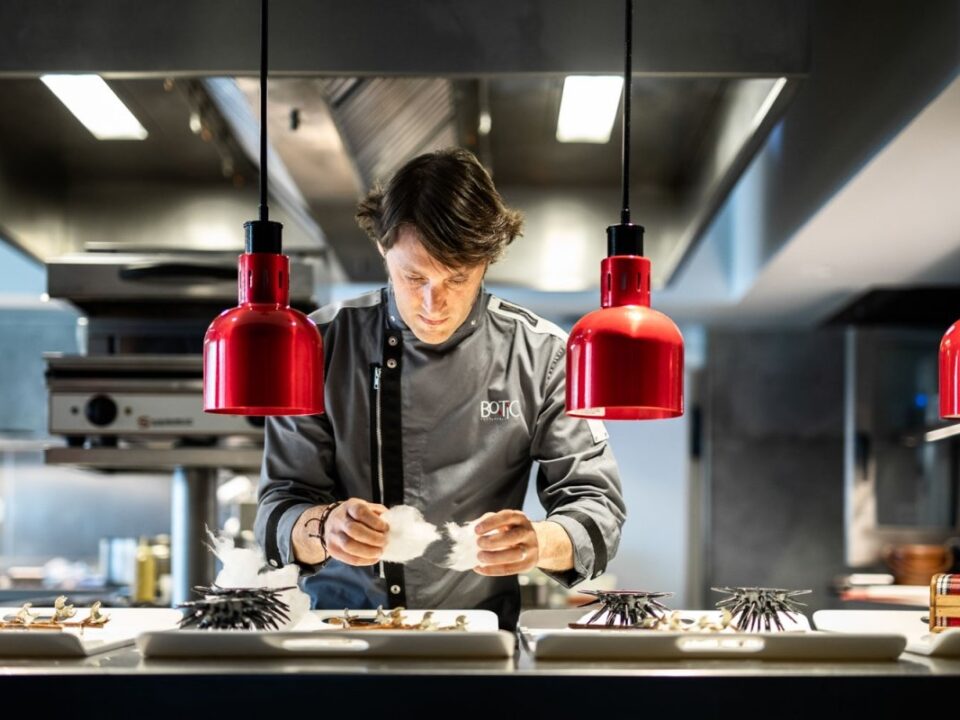
Interview with Roy Avárez
26 March, 2013
JDP: Leading sector companies recruit EUHT StPOL students
13 January, 2014Michael Nowlis serves as Director of the Senior Executive Programme at London Business School. He is also an active management consultant, providing business advisory services to multinational corporations, government agencies, trade associations and academic institutions in the hotel, travel and tourism industries. Nowlis previously served as General Director and Chief Executive Officer of the International Hotel & Restaurant Association, representing over 350,000 hospitality operators, national associations and industry suppliers in more than 150 countries. His professional activities have taken him to more than 100 countries.
Nowlis served for twelve years as Deputy Director and, subsequently, Director of the Institut de Management Hotelier International (IMHI), a hospitality-focused MBA programme based in Paris, jointly administered byCornell University’s School of Hotel Administration and the Ecole Supérieure de Sciences Economiques et Commerciales (ESSEC).
Nowlis’ previous educational posts include Department Chairman at Johnson & Wales University (Providence, Rhode Island USA), Professor at the Centre International de Glion (Montreux, Switzerland) and Lecturer at Cornell University’s School of Hotel Administration (Ithaca, New York USA), the Università Ca’ Foscari di Venezia-CISET (Venice, Italy), EUHT Sant Pol de Mar (Sant Pol, Spain), the Institut de Management Hôtelier International (Cergy, France), the Ecole Hôtelière de Lausanne (Lausanne, Switzerland) and the Academia J. Elton (Santiago, Chile).
A US citizen who has lived in Europe for 30 years, Nowlis held numerous management positions in the hospitality industry, at both the corporate and unit level. His career has focused primarily on the luxury segment, having held positions at The Waldorf-Astoria in New York and the Hôtel Beau-Rivage in Lausanne, Switzerland. He also served as Corporate Director of Food and Beverage Operations for Guest Quarters Hotels (since acquired by Hilton Worldwide). Nowlis also served for seven years on the board of directors of the Council on Hotel, Restaurant and Institutional Education (CHRIE), the 2000-member international association of hospitality and tourism schools and educators. Most recently, he completed a term as Vice Chairman of the World Tourism Organization Business Council.
What do you think is the most important challenge in the hospitality industry in the short term?
It’s overcoming the macroeconomic situation, because obviously the industry is going through some problems, but I hope its not going to be a long term problem.
Which skills are key for being a hotel manager?
I would remark two categories: on one hand, the technical skills: yield management, food & beverage, strategic management in hospitality, etc. And on the other hand, business skills: change management, estimulating innovation in employees and giving new ideas, business environment management, organizational transformation, etc.
Being technically competenent is not enough: you need leadership and communication skills. Both are critical.
Knowing the cultural differences are key for a good strategic plan in any hotel. What is the best way of adapting it to the country?
Observing and listening because one day you’re in Asia, and the next one you’re in
America. We can’t be an expert in every country. I believe when you go to a new culture, you have to observe, listen to them, you are your own apprentice. We do the same thing when we’re on holidays. You also shouldn’t suffer from stereotypes.
In a complex economic context, which role has the tourism industry to reactivate the economy?
In the long term, I’m an optimistic about this industry. People are going to travel more as they are more educated. And there are also emerging markets. People are more curious and culturally-aware. In the short-term, there’s not much that we can do: offer good value for money. There’s going to be more people unemployed and less resources. But there’s always a market for luxury. We need to get adapted to the environment. The industry on it own is not going to be able to change the macroeconomics.
People say in every crisis there’s an opportunity, do you think that the hospitality industry will profit from it?
There are opportunities. It’s meeting people’s financial needs. Sometimes domestic markets. In the short term is good value for money: hotels, restaurants, airlines… There are always opportunities for distribution. Internet is a great way of getting the message to clients. How we get information is changing. There will be opportunities in niche markets.
Do you think companies in the hospitality industry are managing correctly the training of their employees?
I tend to be critical. They looked at training as something nice to do when times are good, but not important. The time you really need to invest in training is with bad times. You need to stimulate it from the outside. Most hotels are going through tough times: cutting costs, or needing to be more aggressive in marketing. They need to change differently: getting HR out of the hotel, getting new experiences, etc… The training budget is the first one to go. There’s time if it is a priority.
Is creating business any different in the several countries or continents where you have worked?
Business is different in many countries, but in the end, the goal is the same: making money. Ones are more creative, others more optimistic. It is done differently, as the education level is also different. In some areas, sometimes you need expats for the heading positions.
How can you, as a hospitality company, monitor the changes in the people’s lifestyles?
That’s critical for success. Consumer behaviours are changing. You see it in your own operations. You need communications with your clients. We’re all connected, so there are many different ways and ideas: joining the local hotel association, talking to competitors, observing when travelling, reading the professional press.. It should be easier now than before. We usually just see our own little world, but the enormous amount of information is almost overwhelming.
What do you think of the increase of hospitality management schools?
It has happened in most countries. Some are more serious than others. The best ones will survive and its students will be the ones getting the jobs. There could be a problem if there are too many graduates, but yet the industry is large enough to work worldwide. The hospitality professionals will become more mobile.
Why participating in the EUHT StPOL programmes and not other schools in Spain?
Sant Pol is a serious university. I have been coming here for more than 20 years. And the graduates are well positioned. Bringing outstanding chefs and professionals to lecture at Sant Pol is part of its reputation. I participate in several universities in Europe (France, London, Lausanne) and I participated in TSI in the past.
Would you give any advice to the students that are about to graduate?
Keep your mind open, be flexible, be mobile. Change is only going to come more and more. The most important is: your learning begins with your working experience. The illiterate of the 21st century aren’t those who can’t read, but those who can’t learn and unlearn.






